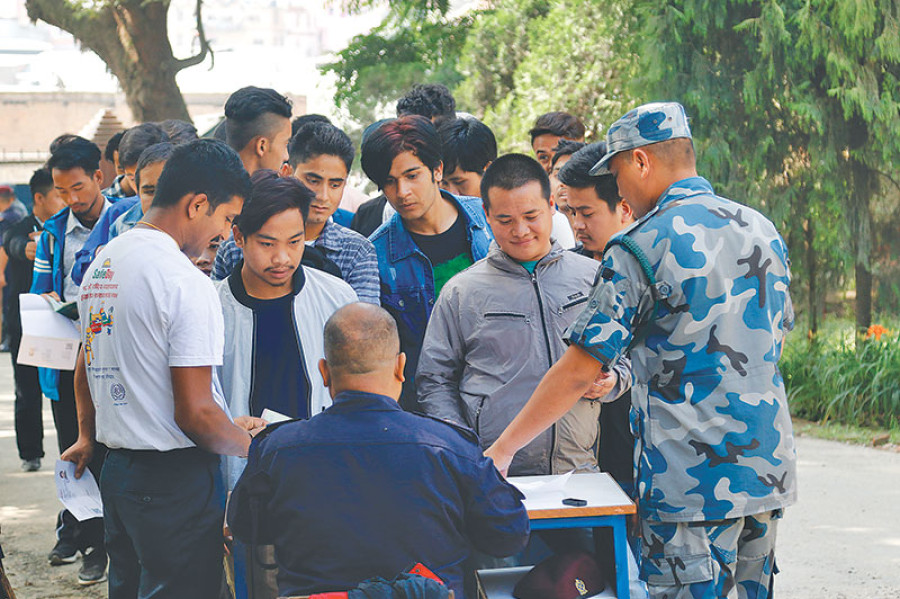National
Over 7,000 miss Korean proficiency test; 247 get expelled for cheating
Thousands of candidates, who had registered for the Korean language proficiency test (TOPIK), did not take the exams that concluded on Sunday.
Chandan Kumar Mandal
Thousands of candidates, who had registered for the Korean language proficiency test (TOPIK), did not take the exams that concluded on Sunday.
Passing the test is compulsory before one can go to South Korea for jobs under the Employment Permit System. The exams were conducted on Saturday and Sunday.
According to EPS Korea section of the Department of Foreign Employment, 82,264 people had registered for TOPIK and only 74,866 of them took the test.
Shobhakar Bhandari, the information officer of the EPS Korea section of the department, said 7,398 candidates missed the test this year— 3,429 on Saturday and 3,969 on Sunday.
Nearly 7,000 candidates had missed the exams last year.
“A significant number of candidates never appear in the test. This is a regular phenomenon. This year the absentee number has gone up comparatively higher than last year,” said Bhandari.
The EPS section had fixed 28 exam centres—16 in Kathmandu, eight in Lalitpur and four in Pokhara—this year.
The number of exam cheaters and fake examinees also went up this year. A total 247 people—58 on Saturday and 189 on Sunday—were expelled or arrested from different test centres this year. There were fewer than 100 cases of exam rule violations last year.
“We had a high number of fake examinees this year. As a penalty, the registered candidates will be prohibited from taking the test for the next three years,” Bhandari said.
The popularity of South Korean jobs among Nepali youths has gone up since the two countries signed the agreement on EPS in 2007.
In 2016, over 60,000 had registered for the language test, which went up to 75,000 in 2017. For job placement in 2019, 82,264 candidates -39,640 in agriculture and 42,624 in manufacturing sector - had filed their applications.
The South Korean government has fixed the maximum ceiling of 7,100 workers from Nepal.
“As Nepal has limited employment opportunities and South Korean jobs have better perks and facilities, our youths are more inclined for jobs there,” said Bhandari.




 9.89°C Kathmandu
9.89°C Kathmandu














